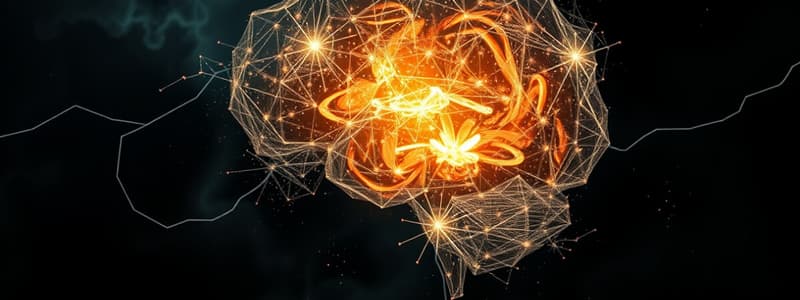Podcast
Questions and Answers
What is the principal apparatus of a philosopher?
What is the principal apparatus of a philosopher?
- A library
- An armchair (correct)
- A computer
- A laboratory
Which of the following disciplines is concerned with the ultimate nature of existence?
Which of the following disciplines is concerned with the ultimate nature of existence?
- Ethics
- Metaphysics (correct)
- Psychology
- Epistemology
Which philosopher is associated with the concept of Cosmos-Centric?
Which philosopher is associated with the concept of Cosmos-Centric?
- Rene Descartes
- St. Thomas Aquinas
- Thales (correct)
- Jean Paul-Sartre
What does ethics study?
What does ethics study?
Philosophy is solely concerned with practical actions.
Philosophy is solely concerned with practical actions.
What is knowledge?
What is knowledge?
Philosophy of __________ studies the nature, sources, limitations, and validity of knowledge.
Philosophy of __________ studies the nature, sources, limitations, and validity of knowledge.
What is the philosophical question of the Philosophy of Art or Aesthetics?
What is the philosophical question of the Philosophy of Art or Aesthetics?
What is the meaning of life according to Philosophy?
What is the meaning of life according to Philosophy?
Flashcards are hidden until you start studying
Study Notes
Philosophy Overview
- Philosophy involves an empirical study aimed at understanding reality, while recognizing its limitations in solving moral and political dilemmas.
- Philosophers primarily engage in reflective thinking, often requiring conversation for deeper insights.
Key Distinctions
- Science: Investigative approach to understanding the world.
- Religion: Accepts beliefs based on faith and revelation.
- Philosophy: Emphasizes reflection and critical questioning.
Human Existence and Definition
- Human beings are often viewed through predicates such as names and identifiers rather than their holistic being.
- A broader understanding of humanity encompasses one's totality as a person.
Philosophical Perspectives
- Cosmos-Centric: Focused on the universe (Thales).
- Theocentric: Centered on God and divine truth (St. Thomas Aquinas).
- Scientific and Rationalistic: Emphasizes logic and reason (Rene Descartes).
- Anthropocentric: Puts humans at the center of philosophical inquiry (Jean Paul-Sartre).
Branches of Philosophy
- Metaphysics: Explores the nature of existence and reality.
- Epistemology: Investigates the sources and validity of knowledge.
- Ethics: Concerned with moral judgment and the nature of right and wrong.
- Logic: Examines principles of valid reasoning.
- Aesthetics: Addresses concepts of beauty and artistic value.
- Psychology: Studies the mind and human behavior.
- Philosophy of Man: Focuses on the human condition within the world.
Fundamental Questions in Philosophy
-
Philosophy of Religion:
- Is there a God?
- What evidence exists to support belief in God?
- Can God's existence be proven or disproven?
-
Epistemology or Theory of Knowledge:
- What constitutes knowledge?
- Is it possible to acquire knowledge?
- What does it mean to know?
-
Ethics or Moral Philosophy:
- Do we possess free will?
- Are our actions predetermined?
- How do we discern right from wrong?
-
Philosophy of Art or Aesthetics:
- What defines beauty?
-
Rational Psychology or Philosophy of Man:
- What is the essence of being human?
- Is a person solely their physical body, or do we encompass a soul?
- What constitutes a fulfilling life and happiness?
- What is the significance of existence?
Studying That Suits You
Use AI to generate personalized quizzes and flashcards to suit your learning preferences.




